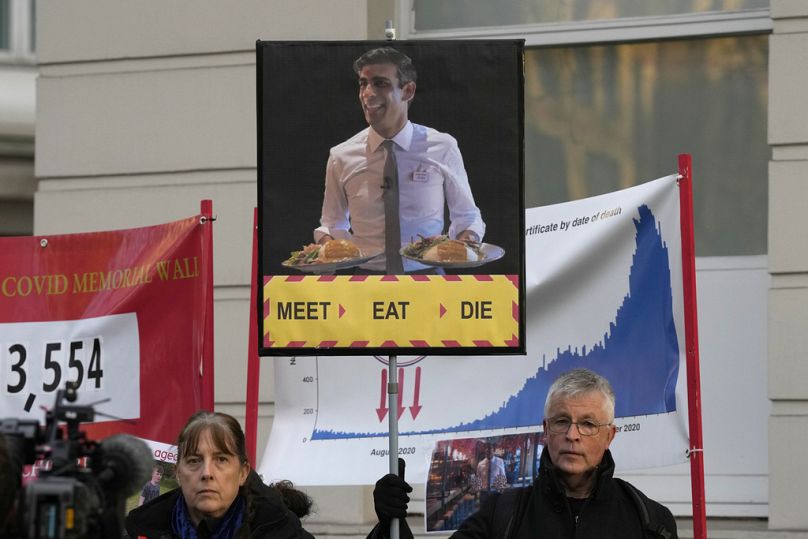The UK's Covid inquiry unfolds with PM Rishi Sunak taking the stand, expressing deep apologies for those affected by the pandemic.
UK Prime Minister Rishi Sunak has been answering questions at the inquiry into Britain's handling of the COVID pandemic, which saw more than 232,000 deaths by or related to the coronavirus, the highest in Europe, and one of the highest death tolls in the world.
Along with other members of the government at the time, including former Prime Minister Boris Johnson who was questioned last week, the inquiry is set to examine the government's response to the pandemic.
This inquiry comes as the conservative party is fractious over Sunak's controversial policy to send asylum seekers to Rwanda, already spending hundreds of millions on the proposal.
Sunak expresses regret and apologises
Taking the stand Sunak began his testimony with a heartfelt apology, saying he was 'deeply sorry to all those who lost loved ones', and that it was 'important that we learn the lessons so that we can be better prepared in the future.'
Sunak emphasised that it was Boris Johnson - as prime minister - who was ultimately responsible for making choices about the UK's direction, and he would give input about the economy as chancellor.
Speaking about the government's changing of course in the lead-up to the first lockdown, Mr Sunak said public health considerations were of primary concern, and that Johnson acted largely on advice from SAGE (Scientific Advisory Group for Emergencies).
PM defends "Eat Out to Help Out" scheme
One of the key focal points of the inquiry revolved around Sunak's flagship scheme, "Eat Out to Help Out," which subsidised midweek meals in pubs and restaurants during August 2020.
The scheme gained popularity within the hospitality industry but sparked controversy as witnesses, including former Health Secretary Matt Hancock and England's chief medical officer Sir Chris Whitty, claimed they were not informed in advance.
Critics argued that the initiative, though not directly linked to increased infections, sent the wrong message to the public.
Even Dame Angela McLean, the government's chief scientific adviser, referred to Sunak as "Dr Death the Chancellor" in a private WhatsApp exchange.
Sunak defended the scheme, stating that Boris Johnson supported it, and he did not recall objections from key advisers during meetings. The inquiry is expected to delve into whether this initiative played a role in the pandemic's trajectory.
Balancing the economy and health
As Chancellor, Rishi Sunak faced the task of balancing economic concerns with the need for public health measures. The furlough scheme, costing a staggering £70bn, protected millions of workers affected by lockdowns.
However, clashes between Sunak and the government's scientific advisers arose as the latter recommended stricter measures to contain the virus.
The inquiry is poised to scrutinize the dynamics between the Treasury and scientific advisers, exploring whether a more coordinated response could have mitigated the impact of the pandemic.
During the inquiry, details emerged about the Treasury's internal challenges. Sunak revealed that in March 2020, the government faced significant issues with gilt rates, indicating a shift in the global investment community's perception of the UK government's borrowing capabilities.
A failed gilt auction on 21 March heightened concerns, leading the government to enter a ways and means facility at the Bank of England, essentially an "overdraft facility."
All the while the inquiry went on protesters outside Dorland House voiced anger, associating the "Eat Out to Help Out" initiative with lives lost to Covid, holding placards with the altered versions of the slogan, and holding photos of loved ones lost during the pandemic.
The inquiry counsel questioned Sunak about the scheme's risk of transmission, while the Chancellor defended it as a "micro-policy" aligned with safe reopening measures.
As the inquiry continued, the intricate details of the decision-making process, communication breakdowns, and the economic-health balance were closely examined.












